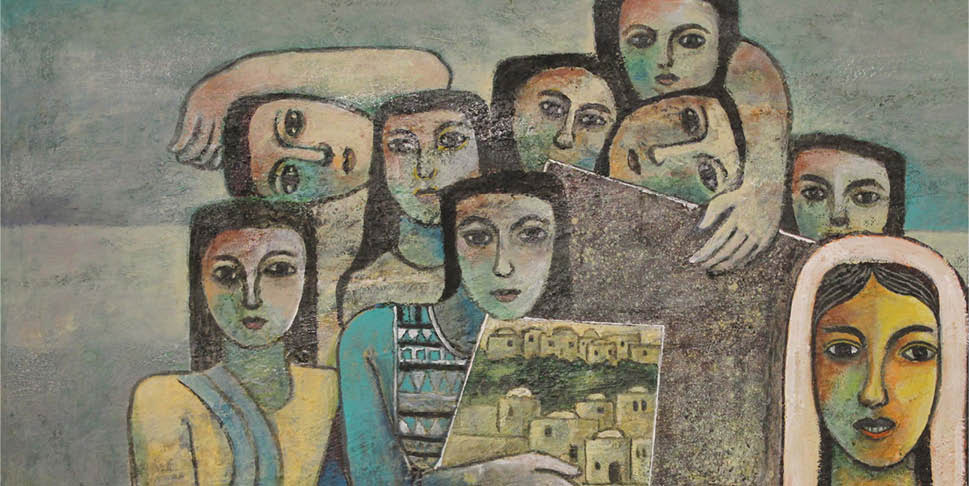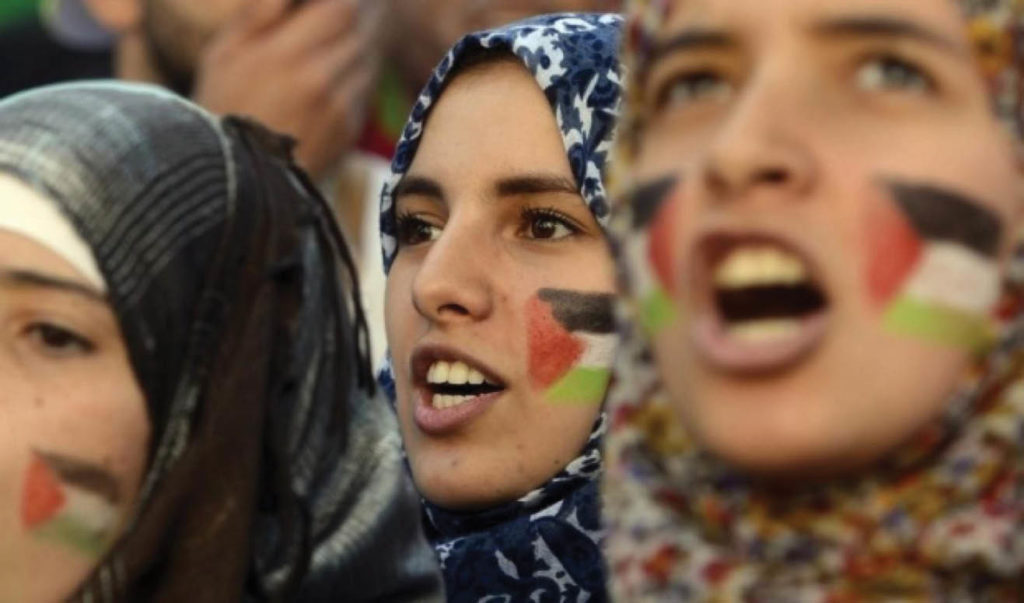
CARE Palestine West Bank/Gaza (WBG) continues to employ an integrated approach to humanitarian assistance and development work, combined with peace and security (the Triple Nexus approach), which also works better for women and girls. CARE Palestine WBG’s Program Goals integrate humanitarian protection response and action and access to basic services, with economic resilience, and women’s participation, leadership, and voice. Through direct engagement and implementation of empowering and gender-transformative programming, CARE works to strengthen and promote good governance and accountability, as well as improve the resilience of households and communities so that they are able to fulfill their economic, social, and political potential. CARE Palestine WBG sees that working with partners on aspects of preventing sexual and gender-based violence (SGBV), increasing economic empowerment, and expanding the voice and participation of women in decision-making and policy processes are key entry points to ensuring women’s empowerment and enjoyment of full economic, political, and social rights. Currently, CARE Palestine WBG implements two gender-equality empowering projects titled KAYANI (lit. My Movement) and Qarari Mostaqbali…My Decision … My Future. Essential to this approach towards change is the establishment of strong partnerships such as that with Women Media and Development (TAM), Women’s Centre for Legal Aid and Counselling (WCLAC), Women’s Affairs Technical Committee (WATC) in the West Bank and Gaza, and the Women Against Violence Organization (WAVO) in Nazareth, Israel. These are entry points where community-level action, coupled with changes in relations and structures and concerted policy-level engagement, all lead to the implementation of a truly integrative approach that – when coordinated with local and international actors – helps advocate for the rights of vulnerable Palestinian communities, especially to determine their own well-being and contribute to building their own future. Furthermore, through policy analysis and evidence-based gendered advocacy initiatives, we will positively impact the lives of at least 1.5 to 2 million women, girls, and youth. We expect to achieve this through policy and advocacy work for three core priority areas: humanitarian programs, economic justice/resilience, and gendered advocacy.

The transformative gendered programming that CARE Palestine WBG’s Program focuses on not only sets the stage for the achievement of gender equality but ensures that communities and groups of men, women, boys, and girls are actively engaged in shifting the reality on the ground.
CARE Palestine implements KAYANI Gender Equality Project, with the main goal of increasing Palestinian women’s public leadership and influence over decision-making, particularly in the justice and security sectors. The main project outcomes are three. First, they strengthen affirmative legal and policy measures (including more robust rights, implementation, and monitoring mechanisms) supporting women’s public-sector leadership. Second, they increase the critical knowledge and practical capacities of key decision-makers in the justice and security institutions, with a focus on influential male leaders and male champions. Third, they alter social attitudes and increase proactive behaviors related to promoting women’s meaningful leadership in public life, especially in communities and universities.
Through transformative gendered programming, CARE Palestine WBG’s engagement sets the stage for achieving gender equality and ensures that communities and all Palestinians actively engage against all gender-based forms of discrimination.
Using the main intervention to achieve the aforementioned outcomes, the knowledge of mid- and high-level decision-makers is strengthened regarding the benefits of gender equality and the positive impact of women in public life. These interventions highlight and challenge legal biases found in civil and military service law (labor law) that affect women’s public leadership, participation, and advancement in the justice and security sectors; they identify and form male and female champions and networks that focus on developing practical strategies to support women’s public leadership; they facilitate the partnering with Palestinian civil society members to advocate and lobby for the identified gaps nationally and internationally; they develop the capacity of selected media outlets, public watchdog organizations, and journalism students to elevate media coverage of women’s public role and sensitize the media products; and they design and launch multimedia campaigns that focus on women’s political participation, peacebuilding, justice, and security. The total number of direct beneficiaries reached in the first year of this project via capacity building and advocacy activities was 1,899 (1,551 females and 348 males). Of these beneficiaries, 53 (47 females, 6 males) are persons with various disabilities.

CARE Palestine WBG launched this year the new project titled Qarari Mostaqbali… My Decision … My Future. This project will promote the engagement of women and youth leaders to play an active role within their communities to enhance mutual understanding, confidence, and trust, and challenge the obstacles that are largely excluding them from peace processes and decision-making. The key peacebuilding principles and parameters of the project are to promote conditions for a sustainable resolution of the Israeli-Palestinian conflict through civil society and citizens’ positive engagement. The lack of women in decision-making roles within the political sphere has been largely recognized as a limiting factor in the potential success of peace processes, as negotiations largely disregard how conflict affects women and girls differently than their male counterparts. Therefore, this project aims to build capacity, promote tolerance, and increase access for activists, political leaders, media institutions, and communities around conflict resolution and peacebuilding processes that are strategic and inclusive of currently disenfranchised women and youth.
The project will shift the society’s perception and attitudes of the role youth and women can play as innovative contributors to social and political change in their communities, especially through working with media and its way of communicating the issue to the public. The project will reach 2,250 community and social leaders from 30 different communities to increase their awareness of the need for women’s political participation. The project also envisages working with 22 media professionals from 11 media institutions to create an enabling atmosphere through the implementation of specialized campaigns that promote nonviolence and human-rights-based approaches. The project comes under the European Union Peacebuilding Initiative.
*This publication is made possible through the generous support of the British Consulate General Jerusalem.


